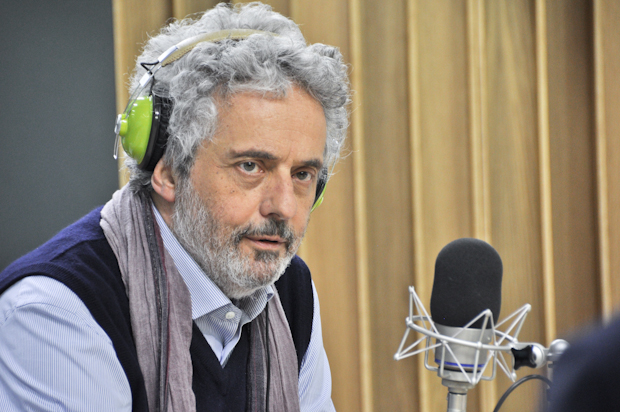
NICOLA PIOVANI
Various projects (not exclusive)
Susanna Stefani Caetani
susanna@onlystage.co.uk
biography
Nicola Piovani was born on May 26, 1946, in Rome, where he has lived and worked ever since. He is a musician, pianist, conductor, composer of film and theatre scores, songs, chamber music and symphonies. Among those who encouraged him in composition, was Greek composer Manos Hadjidakis.
Much of Nicola Piovani’s work has been dedicated to film and theatre, between which his passion is divided. Initially, film took up most of his time, but, over the years, he conceded himself the luxury (as he defines it) of dedicating his time to performing music in theatres, which now occupies most of his time.
His first soundtrack dates back to 1968. It was written to accompany documentary footage of the student movements connected to the faculty of Philosophy, where he was a student. The footage was made by a students’ collective under the direction of Silvano Agosti.
Piovani’s debut in full length soundtrack was to take place the following year with “N.P. - il segreto” by Silvano Agosti. After “N.P.”, Nicola began a career which led him to write scores for more than one hundred and seventy films, and to collaborate with the most important Italian directors including: Bellocchio, Monicelli, the Taviani brothers, Moretti, Loy, Tornatore, Benigni and even Federico Fellini, who engaged the composer for his last three films. Foreign directors with whom he has collaborated include: Ben Von Verbong, Pàl Gàbor, Dusan Makavejev, Bigas Luna, Jos Stelling, John Irvin, Sergej Bodrov, Eric-Emmanuel Schmitt, Philippe Lioret, Danièle Thompson and Xavier Durringer.
Nicola won an Academy Award for the soundtrack for Roberto Benigni’s “La vita è bella” in 1999. He has also received various Italian Awards: three David di Donatello, four Colonna Sonora, three Nastri d’Argento and two Ciak d’oro. In France, he was nominated twice for the Cesar Awards at the ‘Musique et Cinema Festival of Auxerre’ and received an Award from the Public and a Special Mention by the Judges.
During the seventies, he was active as a song writer. He composed two albums with Fabrizio De Andre’: “Non al denaro, non all’amore nè al cielo” and “Storia di un impiegato”. In 1995, he wrote three songs for Roberto Benigni’s theatrical Tour, including “Quanto ti ho amato”.
Initially, Piovani worked for the film industry as well as for theatre, writing the stage music for Carlo Cecchi’s productions and for those of Luca De Filippo, Maurizio Scaparro and Vittorio Gassman.
In 1989, he wrote “I sette re di Roma”, a musical, staged at the Sistina Theatre in Rome by Luigi Magni and Pietro Garinei with Luigi Proietti.
At the end of the '80s, Nicola started to collaborate with Vincenzo Cerami, and together with Lello Arena they founded the ‘Compagnia della Luna’, with the intention of creating a product that had no place on the Italian stage at that time: a type of theatre where both music and words have ample space, and can interact on an expressive level.
The first two creations from this collaboration were: “La cantata del Fiore” in 1988 and “La cantata del Buffo” in 1990. The two works were subsequently combined to become a single piece, and have been performed almost two hundred times, all over Italy, followed by “Il signor Novecento” in 1992, “Canti di scena” in 1993, and “Romanzo musicale” in 1998.
In 1998, the first production of “La Pietà” took place at the Mancinelli Theatre in Orvieto: a “Stabat Mater” for reciter, two singers and an orchestra of twenty-three musicians. Here, Piovani collaborated again with Cerami.
In the year 2000, “Concerto fotogramma” was produced, a project in which Piovani abridged and adapted film scores, taken over a thirty-year period of his career, recasting them in a theatrical form.
Another precious work of his was “Isola della Luce” a score for voce recitante, two singers and orchestra, with texts by Homer, Sicilo, Byron, Einstein, Seferis, Mesonmede of Crete, and Vincenzo Cerami. This was commissioned by the Greek Government and took place amongst ruins on the Island of Delos, as part of the opening ceremony for the Olympic Games in Athens.
In 2006, Piovani composed and directed “La cantata dei cent’anni”, to commemorate the hundred years since the birth of the CGIL Trade Union.
In 2007, he composed an orchestral suite entitled “Epta”, inspired by the number seven.
In 2008, Piovani received the title of ‘Chevalier dans l’ordre des Arts et des Lettres’ from the French Minister of Culture, an honour conferred upon people who have distinguished themselves for their artistic and literary creations.
In 2009, Piovani wrote the symphonic cantata “Padre Cicogna”, for a script by Eduardo de Filippo. This was performed at the San Ferdinando Theatre in Naples, to commemorate the twenty-fifth anniversary of his death. On stage were: Luca de Filippo (voce recitante), and the Orchestra of the San Carlo Theatre, conducted by Piovani himself.
In 2013, he released his first CD, all songs, “Cantabile” with singers like: De Gregori, Servillo, Giorgia, Grigolo, Ferreri, Mannoia, Proietti, Benigni, Jovanotti, Noa, Morandi, Benigni, and with the participation of the Solists of La Scala, a recording highly praised by critics and the public.
